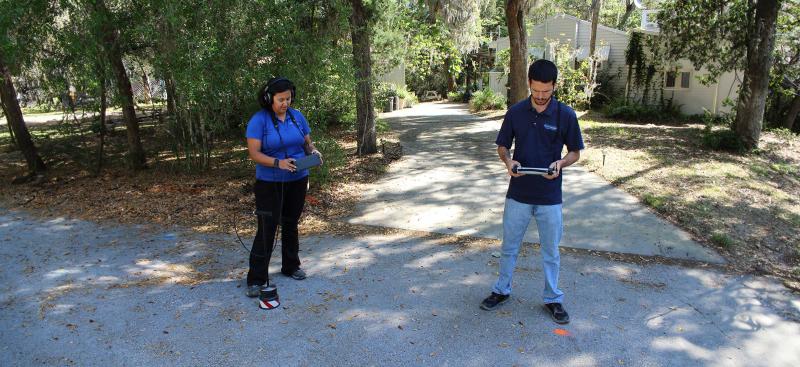This ongoing conservation program provides assistance to public water utilities in an effort to increase system efficiency and reduce system losses.
To evaluate a utility’s system and identify opportunities for water loss improvement, the following practices may be recommended:
- Water Audits
- Leak Detection Surveys
- Meter Accuracy Testing
Water Audits
Water audits are periodic, quantitative assessments of water consumption, losses and leakage in public water supply distribution systems. The purpose is to quantify sources of water loss and non-revenue in a distribution system to develop an effective plan for water-loss control. Water audits create a water balance for the distribution system and divide water loss into various causes including leakage, meter inaccuracy, authorized use, and other types of loss.
Leak Detection
Leak detection is the systematic search for leaks within a utility's potable transmission and distribution system.
An effective leak detection program uses specialized equipment to identify leak sounds and pinpoint the precise locations of underground leaks. Since leaks can develop at any time, detection should be an ongoing, proactive program rather than a one-time, reactive project.
Leak detection is accomplished in two phases. During the first phase, the entire system is acoustically surveyed on any available contact point such as valves, fire hydrants, service connections and blow-offs. Any points of interest are noted. During the second phase, each point of interest is further investigated with a computerized leak correlator that uses sonic transmission to pinpoint the exact location of the leak. The correlator eliminates the need for extensive hit-or-miss excavation.
Meter Accuracy Testing
Meter accuracy testing, which uses a non-intrusive, ultra-sonic, transit-time flowmeter, is an essential part of any water audit. The results of a water audit are valid only if the figures used, which come from metering data, are accurate. At a minimum, all source well meters (production) should be verified every five years. It is best practice, however, to test both source well and service meters (consumption) during an annual water audit.

